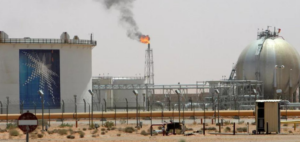The year 2022 will go down in history for the major oil groups. The insatiable demand for oil and gas, coupled with the war in Ukraine, has guaranteed record profits for four of the five “super majors” in the sector (Shell, Chevron, ExxonMobil, TotalEnergies), beating their own net profit records. BP, meanwhile, set a record profit excluding exceptional items. In total, these companies earned $151 billion in net income in 2022.
Profits that don’t please everyone
These record profits have drawn the ire of governments and NGOs at a time when the world is experiencing an energy and climate crisis. US President Joe Biden called the profits “outrageous”. Companies have benefited from the escalation of hydrocarbon prices, with Brent crude oil approaching $140 per barrel in March 2022, and gas at 350 euros per megawatt hour in Europe last summer.
Prospects in 2023
Although prices have fallen since then, experts believe that spikes could occur in 2023 due to the continuing war in Ukraine. The Organization of the Petroleum Exporting Countries does not foresee a decline in demand, but rather growth in 2023. Demand for oil and gas will also be supported by government subsidies to ease consumer bills, which “only prolong the crisis” according to Adi Imsirovic, a researcher at the Oxford Institute for Energy Studies.
Governments seek response
The windfall amassed by the majors is creating a headache for Western governments, while the cost of living is rising. In France, the announcement of the net profit of TotalEnergies has rekindled the debate, while in Great Britain, the government has introduced a tax on energy windfalls in May 2022, as has the European Union with a “temporary solidarity contribution. However, Darren Woods, CEO of Exxon, criticized the measures as a “penalty on the energy sector as a whole.






















